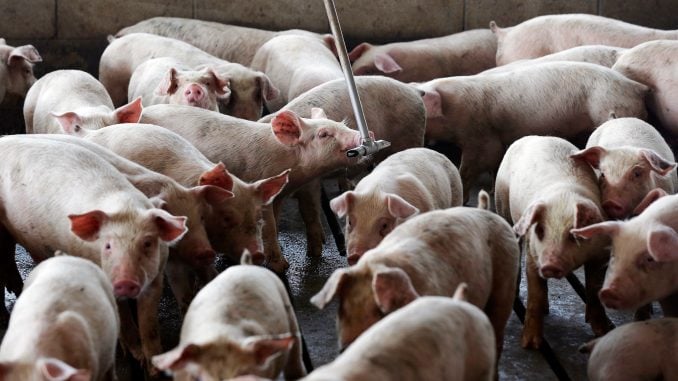
RALEIGH — A lawsuit filed in late June by environmentalist groups is seeking to have recent laws limiting nuisance lawsuits against farming operations declared unconstitutional.
Rep. Jimmy Dixon (R-Duplin), senior chair of the House Agriculture Committee told North State Journal that the legislation he helped craft in no way violates the state’s constitution. “We believe that what we have done is in the best interest of agriculture, and we also believe that what we’ve done will stand constitutional if given a fair chance in an unbiased court.”
Legislators and agriculture advocates who backed the laws say hundreds of lawsuits were threatening to put farms out of business when they were not in violation of any laws or regulations.
Dixon, along with House Speaker Tim Moore (R-Kings Mountain) and Majority Leader John Bell (R-Wayne), released a joint statement after the latest lawsuit, saying, “We will continue to fight for hardworking North Carolina farm families and their communities by opposing any coordinated legal assault that seeks to profit off their livelihoods and potentially shut down their farms.”
The Julius L. Chambers Center for Civil Rights, which spun out from the UNC School of Law after the UNC system and N.C. State Bar prevented the university from engaging in the practice of law, is representing the Waterkeeper Alliance, NC Environmental Justice Network, Rural Empowerment Association for Community Help and Winyah Rivers Alliance, all plaintiffs in the case.
Their claim in the lawsuit, which was filed in Wake County Superior Court, is that these statutes “unconstitutionally deprive North Carolinians of fundamental property rights.” The lawsuit alleges that neighbors of some farms cannot fully enjoy their property due to “stench, flies, pollution and other harms those facilities cause.”
The legislation in question did not end nuisance lawsuits against hog farming operations, but it did limit who could file and limited the amount won by plaintiffs to the total value of the property of which they allege they have been deprived.
One of the plaintiffs, Waterkeeper Alliance, a group based in New York that has a focus on N.C. agriculture, claims there is a growing problem with industrial farms impacting low-income and minority communities. They allege this is due to more hogs being housed on fewer farms. The Alliance’s website quotes UNC Chapel Hill research saying, “In the mid-1980s there were approximately 2.6 million hogs housed in 15,000 hog farms in North Carolina; by 1997, the hog population had ballooned to 8 million and those animals were housed in fewer than 2,400 farms.”
Gov. Roy Cooper vetoed the original bill, 2017’s House Bill 467, but with supermajorities at the time, the Republican-led legislature was able to override the governor’s veto. The next year, 2018’s Senate Bill 711 went through the same process of veto and override, also becoming law.
The lawsuit quotes a statement from Cooper at the time of the 2018 veto, saying, “Our laws must balance the needs of business versus property rights. Giving one industry special treatment at the expense of its neighbors is unfair.”
Dixon told NSJ that he’s not interested in giving any industry special treatment.
“I’m interested in properly promoting and regulating all industries without favoritism or punishment to any one of them,” Dixon said, “I want to promote agriculture and livestock farming properly, according to the rules and regulations in place.”
The case is Rural Empowerment Ass’n, et al. v. State of N.C. (19 CVS 8198).



